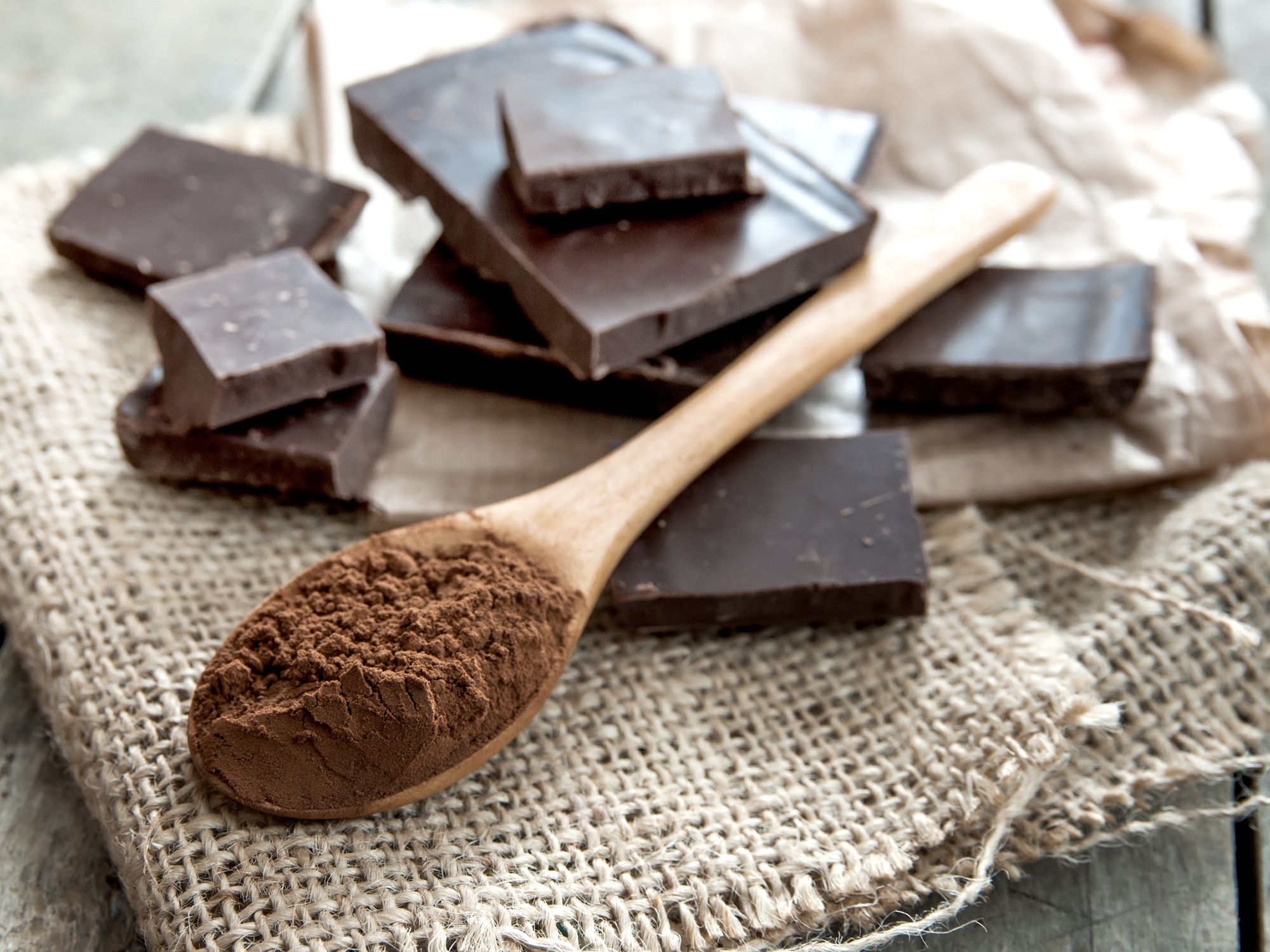Get Easy Health Digest™ in your inbox and don’t miss a thing when you subscribe today. Plus, get the free bonus report, Mother Nature’s Tips, Tricks and Remedies for Cholesterol, Blood Pressure & Blood Sugar as my way of saying welcome to the community!
The right ‘chocolate’ prescription to lower your blood pressure

There’s no getting around it: most of us absolutely adore chocolate!
Like many, perhaps you even struggle to balance your desire to eat healthy with your desire to enjoy life’s pleasures — such as chocolate!
The good news is you may not have to choose. Or at least, if you choose the right chocolate, you may in fact be feeding your body beneficial goodness…
Cocoa — the main substance of good quality chocolate — is derived from the cacao (or cocoa) bean, which contains compounds called flavanols. Scientists have known for some time now that these compounds offer benefits for cardiovascular health.
For example, it’s been shown they may help decrease your blood pressure and improve the overall functioning of your cardiovascular system — pretty great benefits for a bit of chocolate indulgence, right?
Now, exciting new research has shown that a class of compounds called methylxanthines (also contained in cocoa) can further enhance the heart-healthy benefits of these flavanols.
Cocoa’s blood pressure benefits keep getting better
Researchers divided participants into three groups. One group drank a beverage containing cocoa flavanols, another drank a beverage containing cocoa methylxanthines, and another group drank a beverage containing both flavanols and methylxanthines.
As expected, both groups who drank flavanols had reduced diastolic blood pressure, along with other improved markers of vascular health — improved vasodilation (the ability of arteries to relax) and improved blood flow.
However, the group who also drank methylxanthines saw an even greater reduction in diastolic blood pressure and a greater improvement in vasodilation.
Using cocoa to help lower blood pressure
Of course, this doesn’t mean you should start eating a ton of chocolate bars and consider that a healthy habit. Most chocolate, especially milk chocolate and other chocolate-flavored products contain high amounts of sugar, which largely negates the beneficial effects of the cocoa flavanols and methylxanthines. White chocolate contains the least cocoa (barely 20 percent) and is typically at least 50 percent sugar.
That’s why you need to choose good quality dark chocolate — then you can enjoy a little indulgence each and every day!
Aim for a dark chocolate that contains 70 percent cocoa as a minimum. You can even get 85 percent, though you may not enjoy the natural bitterness of dark chocolate with such high cocoa levels. You can also find chocolate that is naturally sweetened with stevia so you can cut out all the unnecessary sugar. Just steer clear of sugar-free chocolate that contains artificial sweeteners, as these are known to harm your health, not help it.
Consider creating desserts that include the “the three pleasures,” which are dark chocolate, nuts and fruits. These foods are considered superfoods and when combined, their nutrition and satisfaction factor is through the roof!
Eating healthy doesn’t have to mean deprivation because as you can see, some of your favorite indulgences don’t have to be eliminated to achieve peak health.
Editor’s note: Have you heard of EDTA chelation therapy? It was developed originally to remove lead and other contaminants, including heavy metals, from the body. Its uses now run the gamut from varicose veins to circulation. Click here to discover Chelation: Natural Miracle for Protecting Your Heart and Enhancing Your Health!
Sources:
-
Rodriguez-Mateos A, et al. Interactions between cocoa flavanols and inorganic nitrate: Additive effects on endothelial function at achievable dietary amounts. — Free Radical Biology and Medicine. 2014;80:121-128.
-
Sansone R, et al. Methylxanthines enhance the effects of cocoa flavanols on cardiovascular function: Randomized, double-masked control studies. — American Journal of Clinical Nutrition. 2017;105:352-360.













